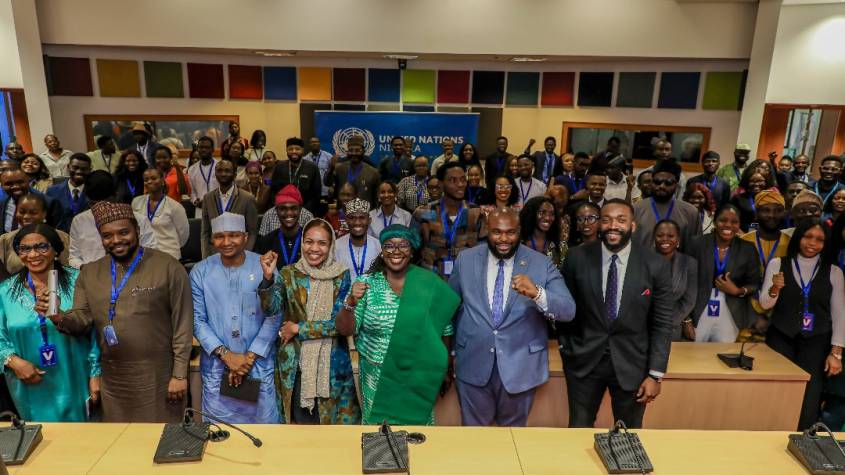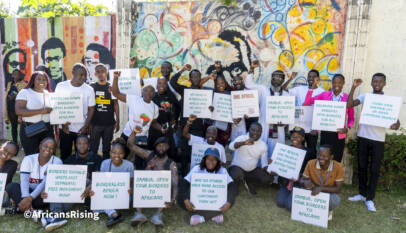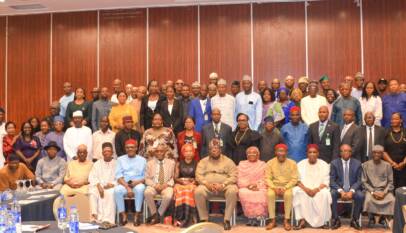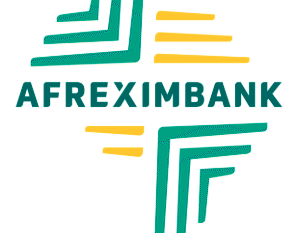Ahead of COP30, Stakeholders Push to Fast-Track Nigeria’s Energy Transition
The 2025 Watch Party and Stakeholder Dialogue, themed “A Moment of Opportunity: Nigeria’s Role in Supercharging the New Clean Energy Era,” explored Nigeria’s strategic positioning in the global clean energy transition, while mobilizing multi-sectoral action ahead of COP30 in Belém, Brazil.
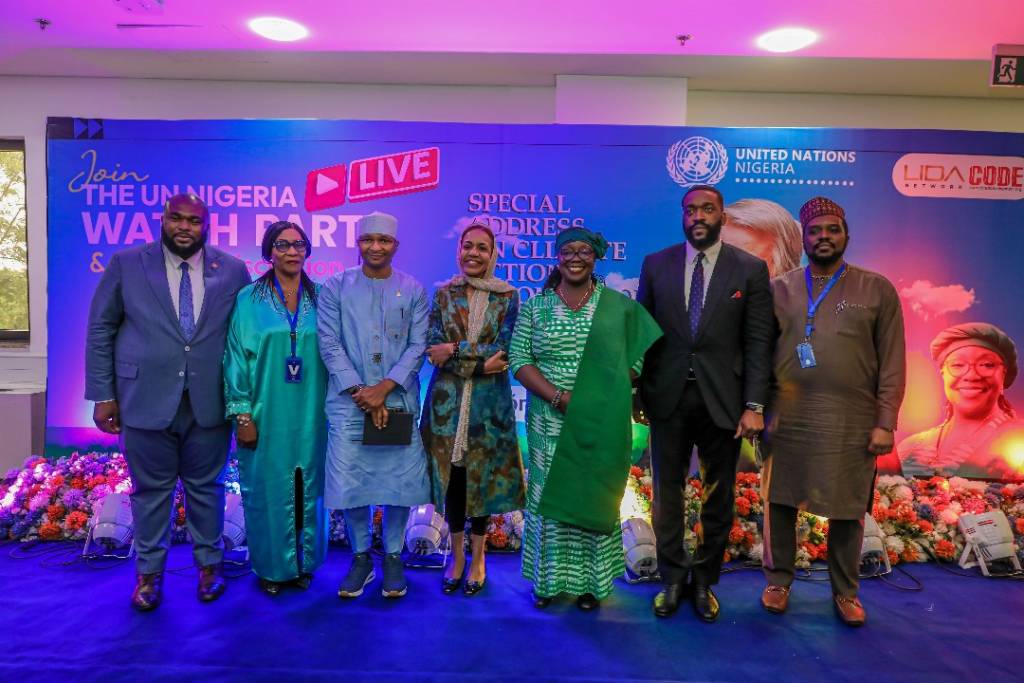
Anchored by the United Nations Nigeria, the LIDA Network and Connected Development (CODE) in response to UN Secretary-General António Guterres’ global address on climate action and the energy transition, the stakeholder dialogue on Nigeria’s just energy transition underscored the urgent need for ambitious national actions to accelerate Nigeria’s shift toward cleaner energy in line with global net-zero targets.
Despite the adoption of the landmark Paris Agreement in 2016 and the renewed global commitments made at COP28—including the tripling of renewable energy capacity and the phasing out of fossil fuels by 2050—Nigeria’s energy sector continues to face significant challenges, including persistent energy poverty, aging infrastructure, and heavy reliance on fossil fuels. Without decisive action, these challenges risk leaving Nigeria behind in the global shift toward a low-carbon future.
According to the International Energy Agency (IEA), renewable energy will surpass coal-fired electricity generation for the first time in 2025. This global transformation, driven by technological innovation and climate imperatives, presents a major opportunity for countries like Nigeria to leverage abundant natural resources such as solar and wind. However, realizing these opportunities will require robust investment in energy infrastructure, coherent policy frameworks, and inclusive financing mechanisms.
Against this backdrop, the UN Watch Party and Stakeholder Dialogue convened a broad spectrum of voices—including energy experts, financial institutions, civil society leaders, government officials, and youth advocates— who examined Nigeria’s clean energy prospects and roadblocks. The dialogue created a vital space for collaboration and reflection on how national ambition, strategic investment, and inclusive policymaking can drive a resilient and equitable energy transition for Nigeria.
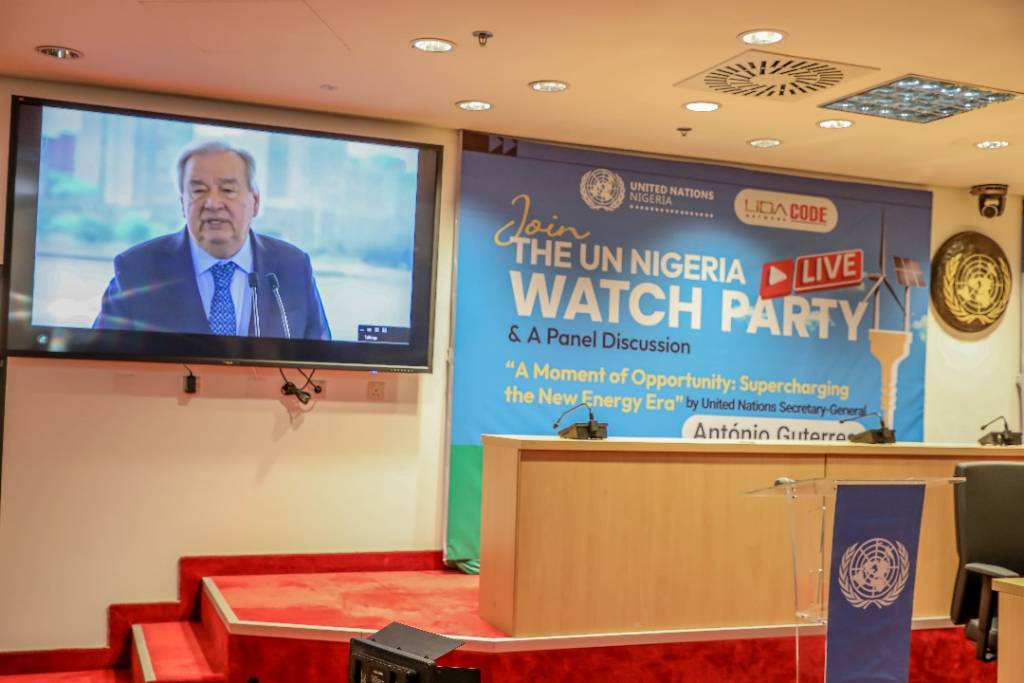
“This is a Moment of Climate Truth – We Must End Fossil Now!” – Guterres
In his keynote address, United Nations Secretary-General António Guterres issued an urgent call for world leaders to break free from fossil fuel dependency and accelerate the shift to renewable energy, warning that the world is on a trajectory toward “climate hell” unless decisive steps are taken—most critically, phasing out fossil fuels and tripling renewable energy capacity within this decade.
“We are playing Russian roulette with our planet. The consequences of delay are deadly—heatwaves, floods, droughts, and rising sea levels are intensifying. The fossil fuel age must end, and it must end with justice and equity. This is a moment of climate truth. It’s time to make peace with nature by accelerating a just and equitable transition to clean energy,” he declared.
Guterres emphasized that climate change is not only an environmental crisis but also a profound injustice such that nations like Nigeria, which contributed the least to the crisis, are among those suffering the most from its impacts. “Communities that did almost nothing to cause this crisis are being hit hardest. Droughts are killing crops. Floods are washing away homes. Heat is making it impossible to work. This is the reality for millions across Africa and the Global South. We cannot allow this injustice to continue.”
The UNSG’s five-point acceleration agenda for the global clean energy transition was: tripling global renewable energy capacity; doubling energy efficiency; phasing out fossil fuels by 2040; ending all new licensing and financing for coal, oil, and gas projects; and significantly strengthening Nationally Determined Contributions (NDCs) by 2025. “Every country must commit to no new coal. Every financial institution must stop funding fossil fuels. And every oil and gas company must shift investment from brown to green—now.”
Guterres described Nigeria as a country with immense potential to become a leader in renewable energy on the African continent and beyond. “Nigeria can be a renewable energy superpower. You have the sun, the skills, and the spirit of innovation. With the right support and policies, Nigeria can power homes, industries, and futures through clean, affordable energy—while creating millions of decent jobs. The path to prosperity is no longer paved with oil and gas. It is lit by wind, sun, and the will to act.”
The UN chief concluded by framing the clean energy transition not as a burden, but as a once-in-a-generation opportunity to build a more inclusive, healthier, and secure world. “This is not just a crisis; it is our chance to reshape the future. Clean energy means energy security. It means economic growth. It means fewer deaths from pollution. It means climate justice. Let us not miss this moment of possibility. Let us turn [the climate] crisis into opportunity, delay into action, and ambition into reality.”
Nigeria’s Path to Clean Energy Must Be Inclusive, Say Experts
The dialogue session on clean energy spotlighted the urgent need for climate action and energy access to go hand-in-hand in Nigeria’s development trajectory, with panelists emphasizing that a just and inclusive transition is essential to achieving both environmental goals and socio-economic progress. Panel moderator David Arinze, a renewable energy specialist, stressed the importance of aligning climate action with development priorities that leave no one behind.
“We must view climate action not only as an environmental concern but as a development imperative. As we move toward net-zero, the transition must be just, ensuring equitable energy access. Renewable energy deployment cannot be confined to urban centers alone. Rural and vulnerable communities must be placed at the center of climate finance and energy policy frameworks,” Arinze said.
Somkele Awa-Kalu, a finance expert at Sustainable Energy for All (SEforALL), highlighted the pressing need for greater cross-sector collaboration to attract climate and energy investments. “One of the biggest challenges is the lack of collaboration. There are many impressive initiatives underway, but they’re happening in silos. We need joint platforms to pool resources and attract large-scale climate finance—both bilateral and multilateral. It’s also crucial that subnational actors are empowered to meaningfully participate.”
Discussions at the dialogue reinforced a central message: Nigeria’s clean energy future must be built on coordinated action, inclusive financing, and people-centered policymaking, and ensuring no one is left behind in the energy transition. Hamzat Lawal, Founder of Connected Development (CODE), spotlighted the role of grassroots accountability in driving equitable energy access, warning that national climate discussions often overlook the lived realities of communities most affected by energy poverty and environmental degradation.
“We must translate policy into grassroots action. Climate funds and energy programs must be transparent and community-monitored. Citizens should know where solar mini-grids are being deployed, who is benefiting, and how funds are being spent. Otherwise, we risk repeating the top-down failures of the past. Communities must have a voice, not just be passive targets,” Lawal stated.
Gender equity was another major theme. Anita Okuribido, President of the Women in Renewable Energy Association (WIRE-A), called attention to the persistent marginalization of women in the energy sector. “Women are still on the fringes. In decision-making, access to funding, and employment, the gaps are glaring. We need tailored policies—credit schemes, mentorship programs, and inclusion benchmarks—that actively empower women-led enterprises. A gender-blind energy transition is not sustainable. It is incomplete.”
While providing a policy perspective, Chioma Amudi of the National Council on Climate Change Secretariat (NCCCS) noted that while Nigeria is making strides in policy alignment, critical capacity and financing gaps continue to hinder implementation at the subnational level. “We’re working on harmonizing our climate policies with energy access priorities. But subnational governments face serious challenges. We must build capacity and expand access to climate finance through readiness support and innovative financing models like blended finance.”
From an implementation perspective, Abba Hayatudeen of the Rural Electrification Agency (REA) detailed efforts to power off-grid communities and support rural livelihoods through initiatives like the Nigeria Electrification Project (NEP). Our current focus is on enabling productive use—powering small businesses, agriculture, and healthcare. To scale this, we need concessional finance from development partners and stronger support from state governments, including land, security, and counterpart funding.”
As Nigeria positions itself for climate leadership ahead of the 30th Conference of the Parties (COP30) in Belem, Brazil, stakeholders are united in their message: a just and inclusive energy transition is not only a moral imperative but also a strategic necessity. Achieving real impact will require centering communities, women, and local actors within energy policies and investment frameworks—ensuring the transition delivers tangible benefits for all.

